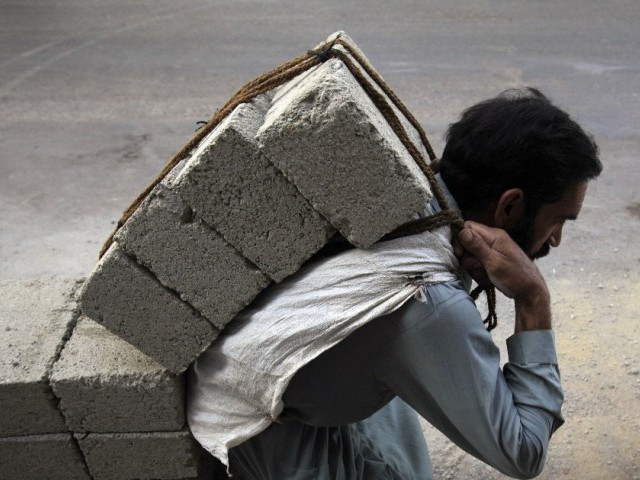In a feeble state: Labour Dept among weakest govt structures, says report
Document presented on lack of progress on enforcement of law

PHOTO: REUTERS
A report presented by the Pakistan Workers’ Federation (PWF) highlighted the chief issues in this regard. “Labour governance is among the weakest organs of governance structures and performance,” the report, a copy of which is available with The Express Tribune notes.
The report discusses workers’ right to unionise at length. It notes that despite the passage of Article 17 of the Constitution and adoption of the Industrial Relations Act by the provinces, workers still grapple with problems pertinent to unionising.
Discussing the phenomenon of “pocket unions” it says, “Workers are often unaware of the existence of such unions.” It notes that legislation requiring at least 20 per cent factory employees to be part of a union for it to be registered by the Labour Department is often exploited by owners. “Employers often use social pressure and intimidation or transfer troublesome workers,” it states while discussing tactics used by owners to faze unions.
Discussing child labour, the report refers to a nationwide survey which has remained pending since 2012. It notes poverty as the chief reason compelling parents into sending their children to work. The report says politicians and union activists are aware of pervasive child labour across various sectors. It says that “the incidence of child labour in the past even in formal sectors increased…” following the abolishment of the labour inspection system.
The report notes that while minimum wage has been raised over time, workers were still not being paid according to it. “Thus, the income of more than two-thirds of Pakistani households is less than the minimum wage.” it states while noting this as a failure in implementation.
Bemoaning the absence of an adequate labour inspection system, the report points to the paucity of inspectors as one of the reasons behind the dismal state of affairs on this account. It states that employers are able to escape inspection by understating employee numbers due to a myriad of laws existing on labour issues. The report says labour inspectors often ignore violations, especially in cases of contractual or temporary employees.
“Members of our organisation travelled to Germany in December, 2015 and presented an English summary of the report to the European Union (EU),” PWF Lahore president Nasim Iqbal told The Express Tribune. Despite grievances expressed in the document, Iqbal remained hopeful as far as compliance with labour standards was concerned. “The integrated project by the government and the chief minister’s directive to eradicate child labour across brick kilns are positive initiatives,” he said. Iqbal said the government had been trying to ensure compliance with ILO standards despite being subjected to criticism.
Others differed with the PWF Lahore president’s opinions. Niaz Khan of the Ittehad Labour Union said while there had been some movement on child labour, nothing had been done on issues where minimum wage and occupational health and safety were concerned. “The inspections and surveys being conducted largely focus on child labour,” he said. Khan said compliance with ILO standards would only be guaranteed if the government moved swiftly to implement labour laws.
Published in The Express Tribune, January 8th, 2016.



















COMMENTS
Comments are moderated and generally will be posted if they are on-topic and not abusive.
For more information, please see our Comments FAQ